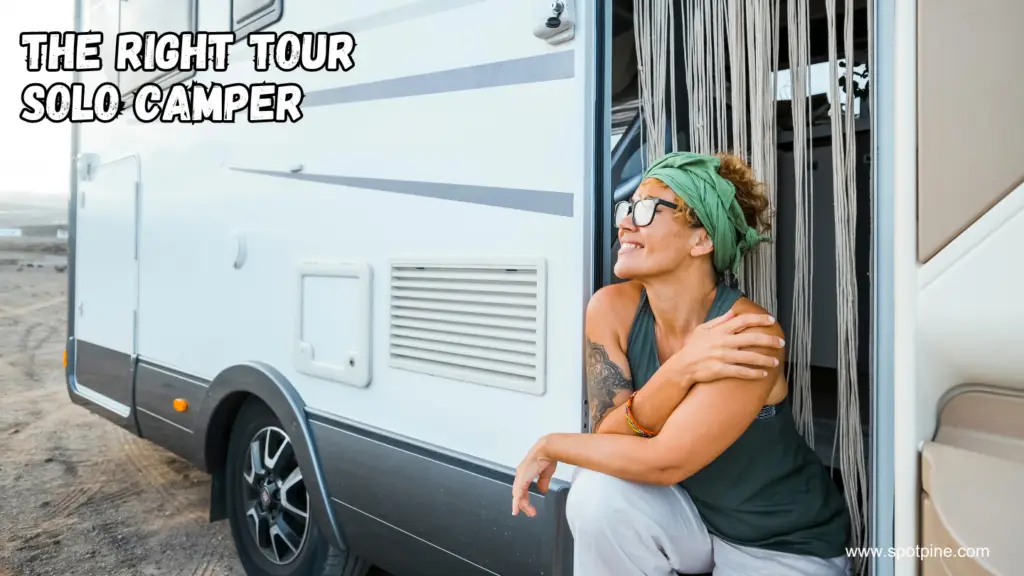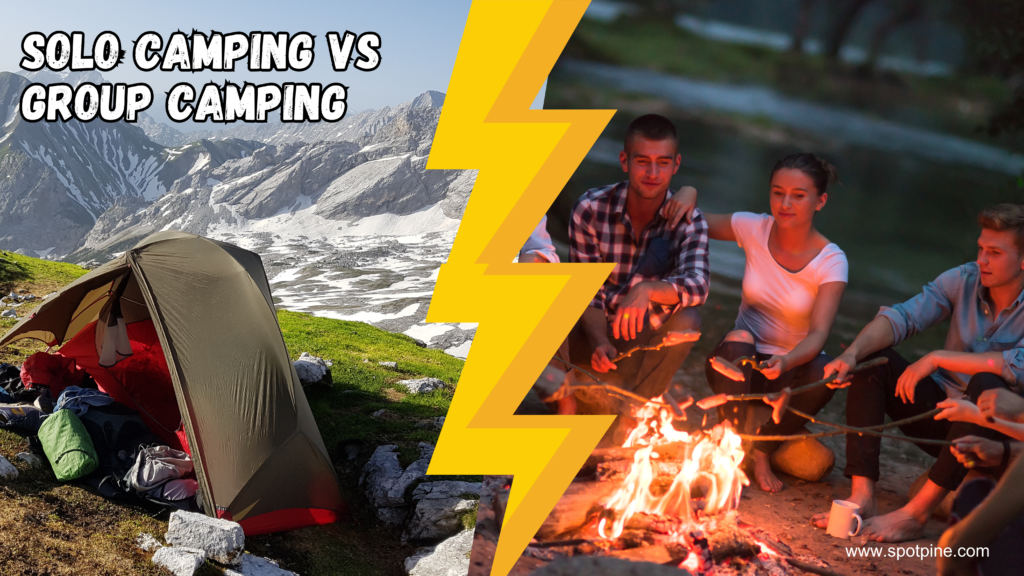To choose the right tour solo camper, consider the number of beds and the space needed for comfort. Take pets into account, ensuring they have enough room to move around freely and comfortably.
When selecting an RV, also consider the vehicle’s towing capacity and the RV’s dry weight to ensure a suitable match. Additionally, think about your long-term living situation and family dynamics, as well as any extra fees, warranty repairs, and tank sizes that may impact your decision.
For solo travelers, smaller rigs like Class B vans, smaller Class Cs, teardrops, pop-up campers, egg campers, and lightweight travel trailers are popular choices. Research and comparison are essential to finding the perfect RV for your solo adventures.
Factors To Consider
When selecting a tour solo camper, consider your space needs and pet requirements for a comfortable camping experience. Opt for suitable RV sizes based on family dynamics and towing capacity to ensure a convenient and enjoyable road trip.
When choosing the right tour solo camper, there are several factors you should consider. By taking these factors into account, you can ensure that your camping experience is comfortable, convenient, and tailored to your needs. The three main factors to consider are space and bed needs, pet-friendliness, and towing capacity and dry weight.
Space And Bed Needs
One of the most important factors to consider when choosing a solo camper is the amount of space and the number of beds you will need. This will depend on your personal preferences and the length of your trips. If you prefer more living space and don’t mind folding down the bed every night, a smaller camper with a convertible bed may be suitable for you. On the other hand, if you prefer a dedicated bedroom area, a larger camper with a separate bedroom may be more appropriate. Consider how much room you need to be comfortable and choose a camper that meets those needs.
Pet-friendliness
If you plan to bring your furry friend along on your camping adventures, it’s important to choose a camper that is pet-friendly. Dogs, especially larger breeds, require space to stretch and move around comfortably. A popup camper or teardrop trailer may not provide enough room for your pet, so consider a camper with more interior space and possibly a fenced-in outdoor area. Additionally, look for camper models with features like easy-to-clean floors and pet-specific accessories to make your pet’s stay more enjoyable.
Towing Capacity And Dry Weight
Before selecting a camper, it’s crucial to consider your vehicle’s towing capacity and the dry weight of the camper. Exceeding your vehicle’s towing capacity can cause safety issues and put unnecessary strain on your engine. Make sure to check your vehicle’s owner’s manual or consult with a professional to determine the maximum towing capacity. Additionally, pay attention to the dry weight of the camper. This weight indicates how much the camper weighs without any belongings or fluids. Ensure that the weight of the camper, along with your belongings, is within your vehicle’s towing capacity to avoid any problems on the road.
Types Of RVs For Solo Travel
Sleek and compact, Class B vans and small Class Cs are favoured by solo travelers for their manoeuvrability and efficiency.
Teardrops and pop-up campers offer a cosy and lightweight option for solo adventurers seeking a simpler travel experience.
Compact and easy to tow, egg campers and lightweight travel trailers are ideal for solo travelers looking for convenience and flexibility on the road.
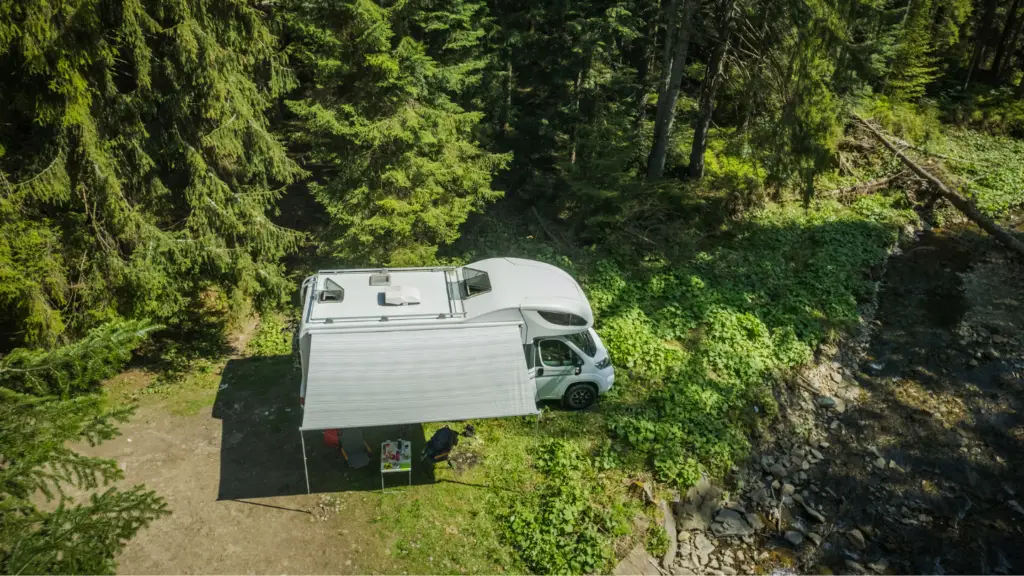
Key Considerations
When it comes to exploring the great outdoors as a solo camper, choosing the right tour camper is crucial. It’s essential to consider different factors to ensure a comfortable and enjoyable experience. Below are the key considerations to consider when selecting the ideal tour solo camper.
Size And Type Of Vehicle
One of the primary considerations when choosing a tour solo camper is the size and type of the vehicle. A well-suited camper for solo travel should be compact and easy to control, allowing for manoeuvrability and convenience. Whether opting for a motorhome or a towable RV, the size should be compatible with solo travel needs while providing sufficient living space.
Safety And Amenities Of Destinations
Ensuring safety and access to essential amenities at destinations is crucial for solo campers. It’s important to research and choose destinations that offer adequate security measures and necessary facilities such as clean water, restroom facilities, and emergency services. Prioritizing destinations with these amenities can enhance the overall solo camping experience and provide peace of mind.
Activities And Entertainment Options
Another vital factor to consider is the availability of activities and entertainment options at the chosen camping locations. Solo camping offers the opportunity to engage in various outdoor activities, so selecting destinations that offer hiking trails, fishing spots, or other recreational options can enhance the overall experience. Additionally, having access to entertainment options such as nearby attractions or scenic viewpoints can add excitement to the solo camping adventure.
Tips For Choosing The Right RV
When choosing the right RV for solo camping, consider the size and comfort you need, as well as the space requirements for your furry friends. It’s important to choose an RV that allows your pets to stretch and move freely.
Don’t forget to factor in the needs of your family members, including your four-legged ones, to ensure a comfortable camping experience.
Watch For Extra Fees
When choosing an RV, be mindful of additional costs. Some dealerships may include hidden fees for features or services that were not initially disclosed. Understand the total cost of ownership to avoid unexpected expenses later on.
Consider Long-term Living Situation
Assess your long-term living situation and family dynamics before selecting an RV. Consider the space requirements for your family members and any pets. If you have a large dog, ensure the RV has enough room for them to be comfortable during your travels.
RV Warranty Repairs Can Take Time
Recognize that RV warranty repairs can take a considerable amount of time. Before making a purchase, inquire about the warranty coverage and understand the potential delay in getting repairs done. It’s crucial to be aware of the repair process to manage expectations.
Pay Attention To Tank Size
Check the tank sizes of the RV, including water, fuel, and propane. The tank size can significantly impact your travel plans and convenience on the road. Larger tank sizes may reduce the frequency of refills during your trips.
Don’t Dismiss The Little Things
Do not overlook the importance of small details when choosing an RV. Features such as storage space, interior layout, and convenience amenities can greatly impact your overall experience. Pay attention to the little things to ensure a comfortable and enjoyable journey.
Solo Female RV Travel
Embarking on a solo RV journey as a female traveler can be both empowering and adventurous. However, it’s crucial to make informed decisions to ensure a safe and fulfilling experience. From selecting the right RV to choosing destinations and connecting with the solo RVing community, here’s everything you need to know about solo female RV travel.
Best RVs for Solo Travel
When it comes to solo RV travel, the choice of RV plays a vital role in ensuring a comfortable and convenient journey. For solo female travelers, smaller rigs such as Class B vans, compact Class Cs, teardrop trailers, pop-up campers, and lightweight travel trailers are often preferred. These options offer a manageable size for solo handling and fitting for various travel preferences.
Safety And Security Tips
- Always choose well-lit and populated camping grounds for overnight stays.
- Invest in reliable security systems and locks for your RV for added safety.
- Inform trusted individuals about your travel plans and regularly update them about your whereabouts.
- Trust your instincts and be cautious when interacting with strangers during your travels.

Choosing Destinations
When selecting destinations for solo RV travel, prioritize areas known for being solo female traveler-friendly. Opt for places with diverse outdoor activities, well-maintained camping grounds, and access to essential amenities. Research and plan your route in advance, considering factors such as road conditions, weather, and nearby medical facilities.
Connect With Solo RVing Community
Connecting with the solo RVing community can offer valuable insights, tips, and support. Participate in online forums, social media groups, and local meetups to network with fellow solo travelers. Sharing experiences and seeking advice from seasoned solo RVers can enhance your journey and contribute to a sense of community and safety.
Finding The Best RV for Solo Travel
Choosing the right RV for solo travel can be overwhelming, but considering factors like size, comfort, and pet requirements can help narrow down your options. Take into account your specific needs and preferences to find the perfect camper for your solo adventures.
Understanding Your Needs And Preferences
When it comes to finding the best RV for solo travel, it’s important to start by understanding your needs and preferences. Consider the number of beds and the amount of space you’ll need to ensure comfort during your travels. If you have a family, take into account the need for extra room to avoid feeling cramped. Don’t forget about your furry friends either – pets are an essential part of the family and require adequate space to move around. It’s crucial to find an RV that can accommodate everyone’s needs.
Researching And Comparing Different Models
Researching and comparing different RV models is crucial in finding the perfect fit for your solo adventures. Take the time to explore various options and assess their features and specifications. Look for RVs that offer the right balance of space, amenities, and mobility. Consider the type of RV that suits your travel style – whether it’s a motorhome, a towable RV, or something in between. Look for compact and lightweight options that are easy to maneuver and maintain. Reading reviews and seeking advice from fellow solo travelers can provide valuable insights into the pros and cons of different models.
Renting And Test Driving Options
Renting an RV before making a purchase is a smart way to experience firsthand what it’s like to travel solo in different models. Look for rental options that allow you to take the RV for an extended test drive. This will give you the opportunity to assess its performance, comfort, and suitability for your needs. Pay attention to factors such as driving ease, fuel efficiency, and the overall layout and functionality of the living space. By test-driving different models, you can ensure that you choose an RV that aligns with your preferences and enhances your solo travel experience.
Considering Budget And Financing
When it comes to purchasing an RV for solo travel, it’s crucial to consider your budget and financing options. Determine your budget range and evaluate different models within that price range. Keep in mind that additional costs, such as maintenance, insurance, and campground fees, should also be factored into your budget. Explore financing options that best suit your financial situation, and consider whether buying new or used is the right choice for you. Don’t forget to negotiate the price and carefully read the terms of any financing agreements before committing to a purchase. Taking a mindful approach to budgeting and financing will ensure that you make a sound investment in your solo travel dreams.
Rv Selection Process
Choosing the right RV for solo camping can be an exciting yet daunting task. With so many options available, it’s important to carefully consider your needs and preferences. To simplify the process, here’s a step-by-step guide to finding the perfect RV for your solo adventures.
Gathering Advice From Solo Travelers
When starting your RV selection process, it’s beneficial to gather advice from experienced solo travelers. Their insights can offer valuable guidance and help you avoid common pitfalls. Forums, blogs, and social media groups dedicated to solo camping are excellent places to connect with fellow adventurers. Ask questions and seek recommendations to gain a better understanding of which RV types are popular among solo travelers.
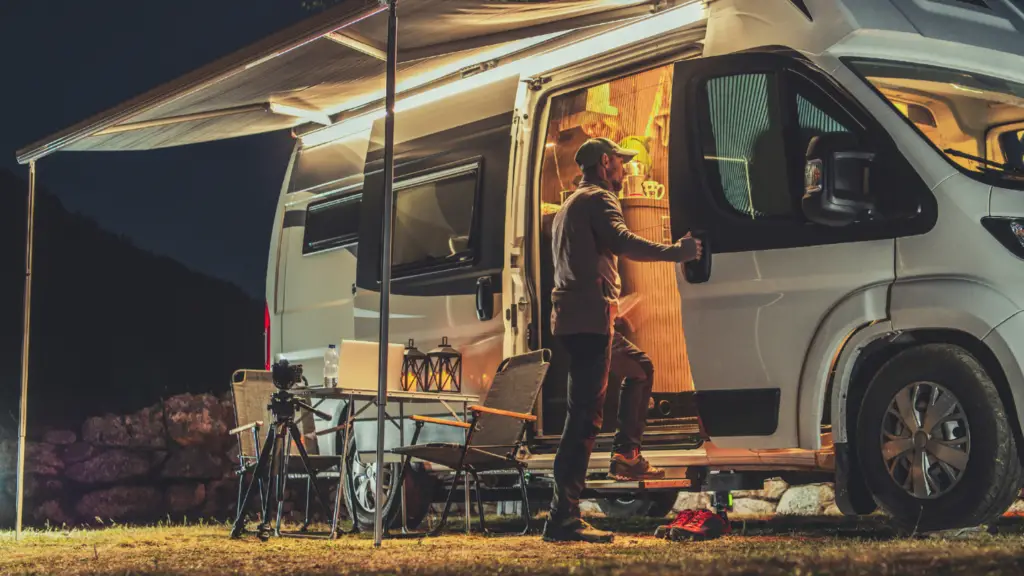
Exploring Different RV Types
Once you have gathered advice, it’s time to explore the different types of RVs available. This step involves understanding the pros and cons of each type and how they align with your preferences and travel style. Here are a few popular options for solo campers:
- Class B Vans: These compact motorized RVs offer convenience and manoeuvrability, making them popular among solo travelers.
- Teardrop Trailers: If you prioritize simplicity and easy towing, teardrop trailers are a great choice. They provide a cozy sleeping space while being lightweight and compact.
- Pop-Up Campers: For those who enjoy a more traditional camping experience, pop-up campers offer a balance between comfort and convenience. They are easy to tow and provide ample sleeping space.
- Lightweight Travel Trailers: If you desire more space and amenities, a lightweight travel trailer might be the perfect fit. These trailers offer comfort without compromising on mobility.
Taking Amenities And Features Into Account
Consider the amenities and features you prioritize when choosing an RV. As a solo camper, it’s important to have everything you need to make your adventures comfortable and enjoyable:
- Sleeping Arrangements: Determine the number of beds you require and the level of comfort you desire.
- Kitchen Facilities: If you enjoy cooking, make sure the RV has a fully equipped kitchen with sufficient storage space.
- Bathroom: Decide if having a bathroom within your RV is essential for your comfort.
- Storage Space: Consider the amount of storage you need for camping gear, clothing, and personal belongings.
- Entertainment Options: If you enjoy entertainment on the road, look for RVs with built-in TVs, sound systems, and connectivity options.
Making The Final Decision
After thoroughly exploring different RV types and considering the amenities and features that matter to you, it’s time to make the final decision. Remember to:
- Weigh the advantages and disadvantages of each RV type based on your camping style and preferences.
- Consider your budget and choose an RV that fits within your financial means.
- Visit dealerships or rent RVs to get a firsthand feel for the space and features.
- Read reviews from other solo campers who have purchased or rented the RV models you are interested in.
By following these steps and considering the advice from experienced solo campers, you are sure to find the right RV for your solo camping adventures. Happy travels!
Solo RV Trip Planning
When planning a solo RV trip, prioritize safety and enjoyment by selecting destinations that are well-known for their camper-friendly facilities and secure surroundings.
Prioritize creating a detailed itinerary to ensure a structured solo camper trip. Plan your route and allocate a realistic budget for accommodations, dining, and activities.
Prepare for your solo camper adventure by packing essential items such as a first aid kit, camping gear, cooking supplies, and clothing suitable for various weather conditions.
Prioritize safety precautions by informing a trusted individual of your travel plans, carrying emergency supplies, and familiarizing yourself with basic emergency protocols for different scenarios.
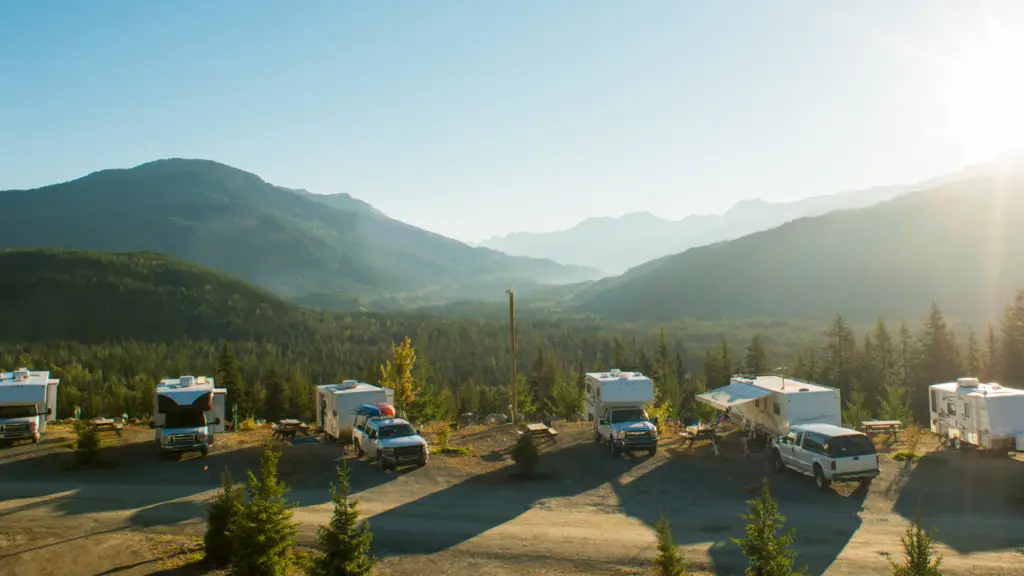
FAQs:
How Do You Decide If A Camper Is Right For You?
When deciding if a camper is right for you, consider the number of beds and space you need for comfort. Also, think about your pets’ needs. Big dogs may need more room to stretch, so certain RV options may not be suitable.
Consider your long-term living situation and family dynamics, and don’t forget about the little things that matter.
What Is The Best Travel Trailer For A Single Person?
The best travel trailer for a single person depends on their personal preferences and needs. Smaller options like teardrop trailers or pop-up campers are often a good fit for solo travelers. Consider factors like size, weight, and features when choosing the right travel trailer.
What I Wish I Knew Before Buying A Travel Trailer?
Before buying a travel trailer, consider the number of beds and space needed for comfort. Watch out for extra fees, and match the trailer to your tow vehicle. Tank size matters, and consider long-term living and family dynamics. Pay attention to RV warranty and repair issues.
What Weight Should I Look For When Buying A Camper?
When buying a camper, consider the Maximum Towing Capacity of your vehicle and the RV’s Dry Weight.
Conclusion
When choosing a tour solo camper, prioritize comfort, space, and pet accommodations. Consider your family dynamics and long-term needs for a smooth camping experience. Matching the right RV weight with your vehicle’s towing capacity is crucial. Pay attention to details and features that will enhance your solo travel adventures.

